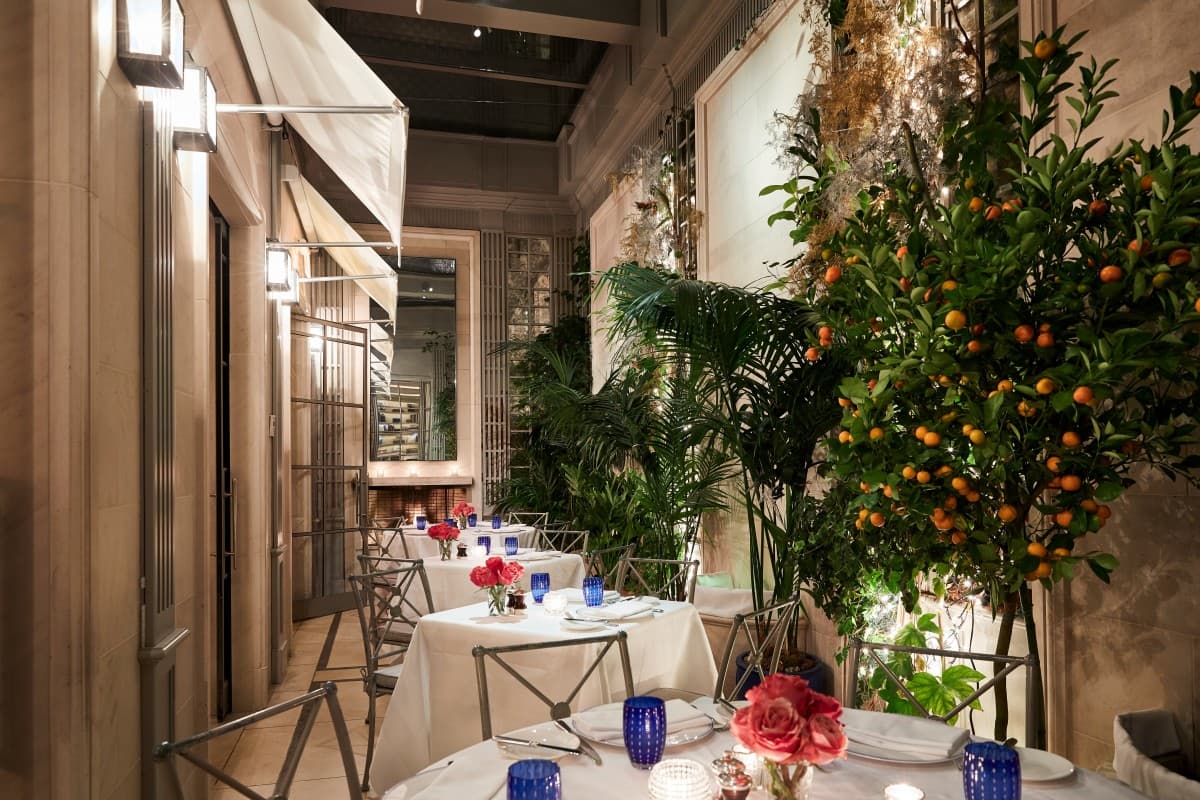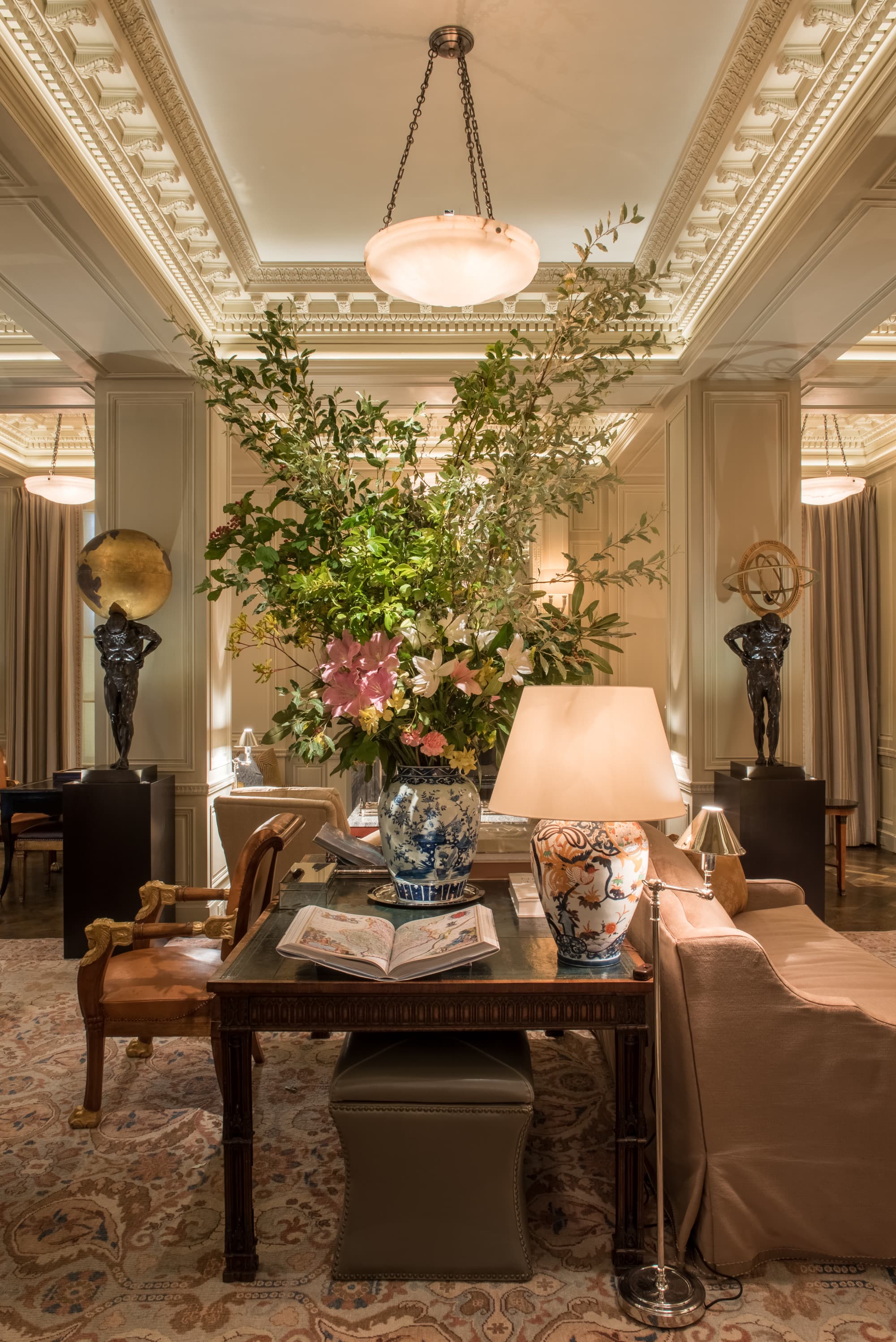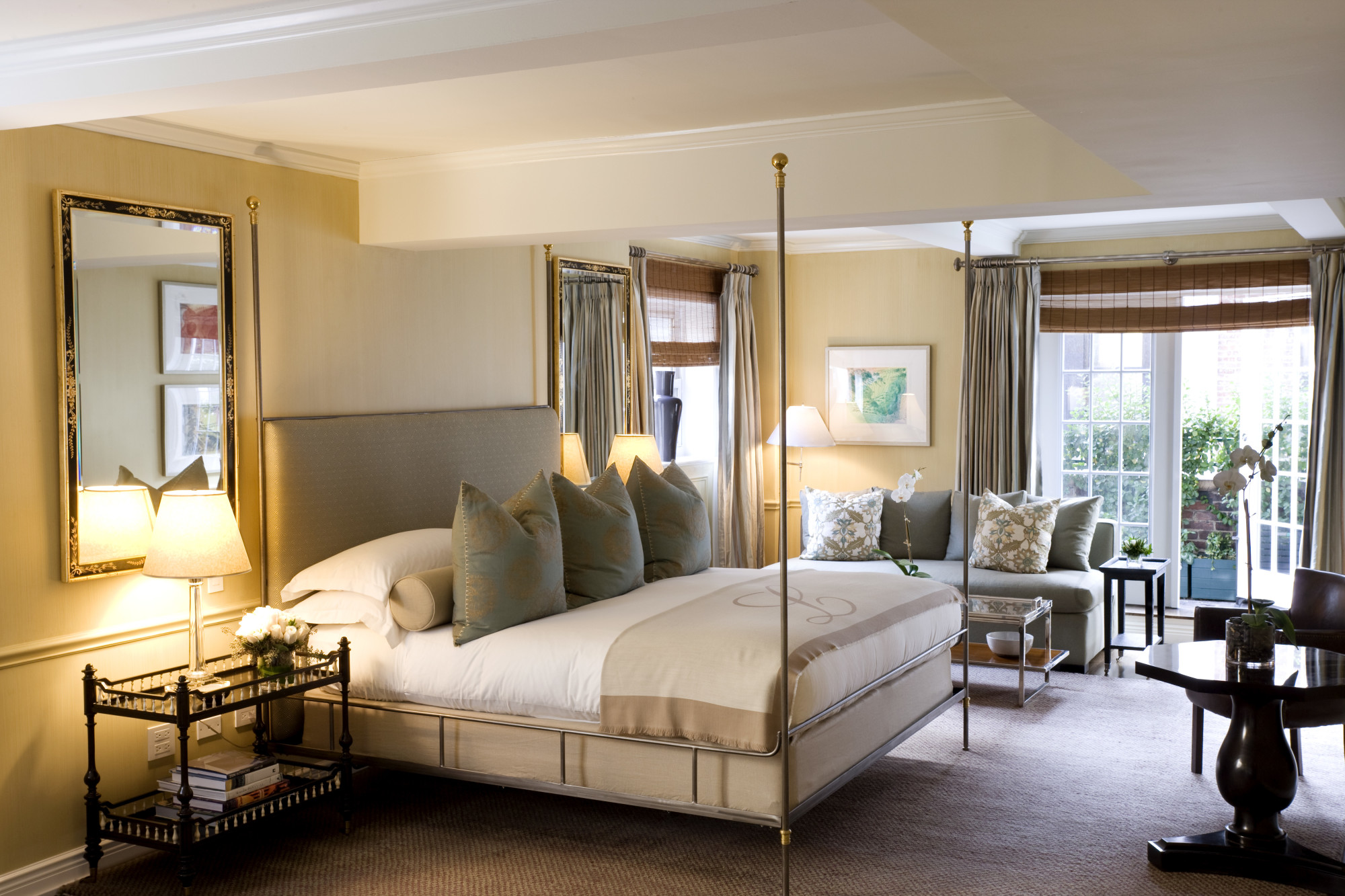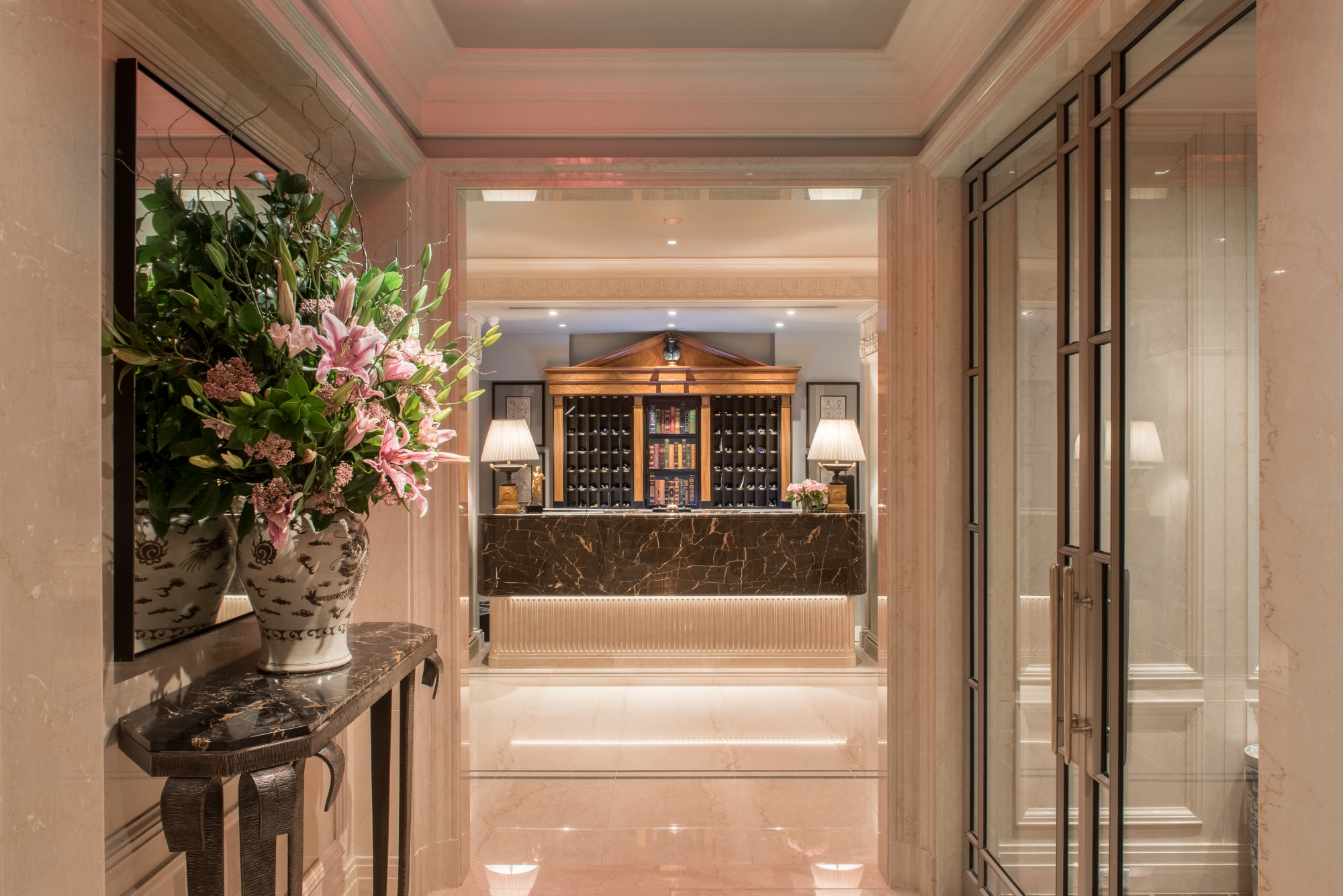



Images courtesy of Dina De Luca & The Lowell
It all started with an ashtray. In the mid-eighties, The Lowell, a sophisticated boutique hotel on the Upper East Side, was renovated. Shortly after, Dina De Luca Chartouni noticed the ill-placed specimen during a meeting. She called the hotel's manager.
“This is rather out of context for the design ethic of The Lowell,” she recalled telling him. “I think it has to go.”
At that point, Dina had been working in film for many years. Her husband had recently purchased The Lowell, which first opened as a hotel in 1927 and quickly became a New York staple. He did not wish to deal with the aesthetic mismatch. From that point onward, Dina took charge of the artistic direction of the hotel.
She was working on a documentary series for HBO, and had about three months of downtime in between filming. In the interim, she selected rooms that desperately needed renovating. The hotel seemed to be getting further away from its original design scheme; the newest vision almost betrayed its classical elegance and charm. Dina relied on her strong visual sense from her previous life as a painter to breathe life back into the tired spaces.
“I cannot understand the designers of the world who walk into a classical building with beautiful windows and then try to do something so opposite in the rooms,” she said.
She’d never worked in hospitality, but her keen awareness for color, light and shadow — essentials in both painting and film — allowed her to imbue the spaces with beauty.
“I treated them just like I would have with a film budget, with a production lead time and getting things done,” she said of the room renovations. “I'm not raised in hospitality in any way, but I'm raised in that sensibility of experiences.”
Beautiful things




Images courtesy of The Lowell
Dina has always had an appreciation for beauty. She grew up in a European style house in Forest Hills Gardens, New York and commenced her education at the Convent of Sacred Heart. The all-girls school in Manhattan's Upper East Side combined two palatial homes: Otto Kahn's Italian Renaissance mansion and James Burden's Beaux Arts mansion.
“I used to walk up a marble staircase holding onto a red velvet handrail. And it was like you were in a palace,” she said of Sacred Heart. “My exposure to such beautiful things — proportions, light, color — all unconsciously influenced me from an early age.”
Students attended class beneath gilded ceilings, in classrooms outfitted with stone fireplaces. (The Lowell’s wood-burning fireplaces are one of its endearing details.) In school, Dina gravitated toward art and anatomy. She had a knack for painting, something her parents realized when she was six years old. Painting required her to focus intensely on light and shadow. Such hyperawareness subconsciously seeped in, she reasoned, and helped her in film — and hotel design — later on.
In fact, more recently, she enrolled in night art classes at the New York Academy of Arts. During one session, she painted a live model.
“I literally got so lost in what I was doing that I remember getting up and I felt like I was 19 again,” Dina recalled. “And I have three grown children. I was thinking, ‘Am I going to my dorm?’”
An understated feeling

Image courtesy of The Lowell
The Lowell has been blessed by Dina's artistic sensibilities. Her mother loved art and antiques and often brought her along to all the auction houses. Today, most of the hotel's art consists of pieces hand-selected by Dina. Each room is its own private art gallery; no two are the same.
In The Lowell’s Club Room, a handsome lounge, a vibrant Cy Twombly is flanked by two 16th-century Italian prints. On the same wall hangs yet another painting, the thesis work of a recent New York Academy of Art graduate. Guests are also surrounded by tasteful photographs and sculptures.
“It's just combining them and making a story out of them,” Dina said of the pieces.
And the story is a beautiful one. Even the bookshelves are works of art. Dina collaborates with publishing houses and selects fun, modern books. The rotation is always changing.
“I didn't want the books to be old. I wanted them to be so much fun that you wanted to grab them and read them,” she said. “Books that you would never buy for yourself.”
Topics range from fashion (jewelry, gloves) and travel to cars, boats and planes. The books are visually beautiful, and a joy to read. At The Lowell, everything seamlessly fits together. The art and decor is an eclectic collection of beauty, an impeccably curated menagerie. Dina adds these thoughtful touches while also staying true to the hotel’s bones.
“We are dictated by a 1920s building,” she said. “We cannot be everything to everyone, but we stay true to ourselves and we're not a flag changing in the wind.”
Guests are treated to wood-burning fireplaces, private terraces, windows that actually open (a rarity in Manhattan). The Lowell is not concerned with trends or fads. Instead, it is effortlessly timeless.
“Timeless is elegant. It's an understated feeling. It's actually being true to yourself,” she said. “You can't be an imitator of other people. It has to be something that lasts.”
Dina has been unimpressed by some of the attempts at modernization favored by many hotels of late: a light switch that controls too many things, digital food menus, apps for summoning housekeeping.
“People don't want to have to have a job when they come to a hotel,” she said, later adding, “Timelessness is having a light switch that you can operate without having to learn about how to operate it.”
The home you always dreamt of

Image courtesy of The Lowell
A big component of what makes a place special is that it encapsulates a feeling of timelessness. The Lowell has what Dina describes as "a soul."
"It's something that cannot be curated, nor bought," she said. "It evolves over time."
The Lowell will be celebrating its centennial in 2027, and Dina attributes this legacy to the unique relationship that exists between The Lowell's staff and guests. She recently reread letters from guests from the past two decades, all expressing how much the hotel means to them.
"The Lowell prides itself in making guests feel comfortable and welcome, many of whom have stayed with us from generation to generation," Dina added. "They all shared the mutual sentiment that The Lowell feels like a second home."
It’s no surprise why. The Lowell is exceptionally warm and inviting. It starts at the front door, where you’re greeted with a smile. You immediately get that one-on-one contact with people who care about your wellbeing. At the front desk, you’re issued a physical key. No mobile check-ins here.
The staff call guests before they arrive and learn their likes and dislikes: pillow specifications, food preferences, allergies. If a guest’s flight arrives at 6 am, the staff will do their best to get them in a room as soon as possible. If that’s not possible, they’ll arrange to have the guest shower in another room. It’s about making people feel comfortable and welcome — like they’re coming home.
“I want The Lowell to feel like the very best home you could ever dream of having,” Dina said. “Like a home you always dreamt of, but you couldn't keep up if you had to.”
As Dina’s curated such a special space, she’s noticed the parallels between hospitality and her film career.
“Film and TV are emotional. They reach people's imagination and their emotion, but they're not that concrete experience. But they blend together somehow,” she said. Hospitality, meanwhile, “is a live theater all the time with changing characters.”
When her children were born, she shifted to creating properties — stories, ideas — which writers then developed into screenplays. Caring for kids while shooting scenes in locations around the world proved a bit taxing. (“You could do everything,” she realized, “but you can't do everything at the same time.”) Today, Dina continues to foster her careers in both the film and hospitality industries. With The Lowell, she is still crafting compelling stories, but in a different — and nonetheless complementary — context.
“We are opening the door to people's experiences here,” she said, elaborating how it’s “not a film, but I'm trying to make people feel the emotion of that experience — by making it beautiful, by making their senses come alive.”

